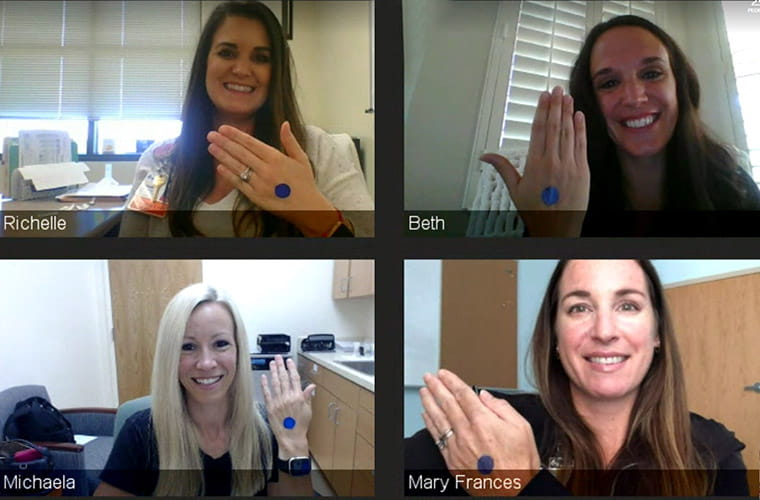Maternal Mental Health Resources During COVID-19

As concern for the mental health of pregnant and postpartum mothers increases during the COVID-19 pandemic, BayCare offers virtual support groups and individual therapy sessions.
Since 2010, BayCare has provided resources and support to mothers currently pregnant and after pregnancy through phone consultations, on-campus support groups and education outreach. Thanks to a grant through the Children’s Board of Hillsborough County, BayCare also hosts group sessions held at community partner locations as well as telehealth individual therapy. All the resources are free, and available to anyone who may be experiencing depression during or after pregnancy.
“For some women, adjusting to motherhood can be overwhelming and they may experience stress, baby blues, postpartum depression or anxiety,” said Beth Kuehling, LMHC and Care Coordinator of St. Joseph’s Women’s Hospital’s Perinatal Support Program.
She adds that for some, being a mother is a hard job and struggling with mental health can make it seem impossible.
“Whether they are currently pregnant, a first-time mom or adding another child to their family, our resources are available to any woman in the Tampa Bay area who may be struggling to adjust to new roles and undergoing emotional changes.”
Fast Facts
- Postpartum depression is the number one complication of childbirth.
- 1 in 7 women will experience depression during pregnancy.
- 1 in 5 women will experience a maternal mental health disorder like postpartum depression.
- More than 600,000 women suffer from a maternal mental health disorder in the United States every year.
- Symptoms of a maternal mood disorder include: crying, sadness, hopelessness, irritability, anger, excessive worries, feelings of guilt, appetite disturbance, sleep disturbances, racing thoughts, and scary and unwanted thoughts.
The COVID-19 pandemic has increased the anxiety pregnant or postpartum women may be feeling.
“Many pregnant or new moms are feeling more uneasy about an already overwhelming situation which is exacerbating their depression and anxiety,” said Kuehling. “For some, social distancing has turned into isolation due to fears of contracting COVID-19 and the unknown impact it will have on their baby.”
According to Kuehling, other common concerns women are expressing during the support group include mourning the loss of what they expected their delivery/recovery to be before COVID-19, the loss of jobs and income because of the pandemic, closures of child care facilities and helping older children with eLearning while trying to breast feed an infant. “These situations are resulting in sadness, feelings of being overwhelmed, hopelessness, isolation, and immense fears and worries.”
While resources that were once provided on hospital campuses are currently not available, BayCare is facilitating individual therapy programs and virtual support groups through a secured network system.
“During the virtual support groups, participants are able to connect with other mothers who may be experiencing similar feelings,” notes Kuehling. “We’re also providing telehealth support groups to our community partners to further reach women in our community.”
If you or someone you know is experiencing symptoms of depression or anxiety during or after pregnancy, please call (813) 872-3925 or email PerinatalSupportServices@BayCare.org to reach a member of the team who will identify how we can help.
Image Caption: BayCare Perinatal Depression Support Manager Richelle Anderson and perinatal/maternal mental health specialists Beth Kuehling, Michaela Strauss and Mary Frances Lowe display the universal symbol of maternal mental health on their hands, the blue dot. The team provides individual and group therapy virtually through a secured network system.
